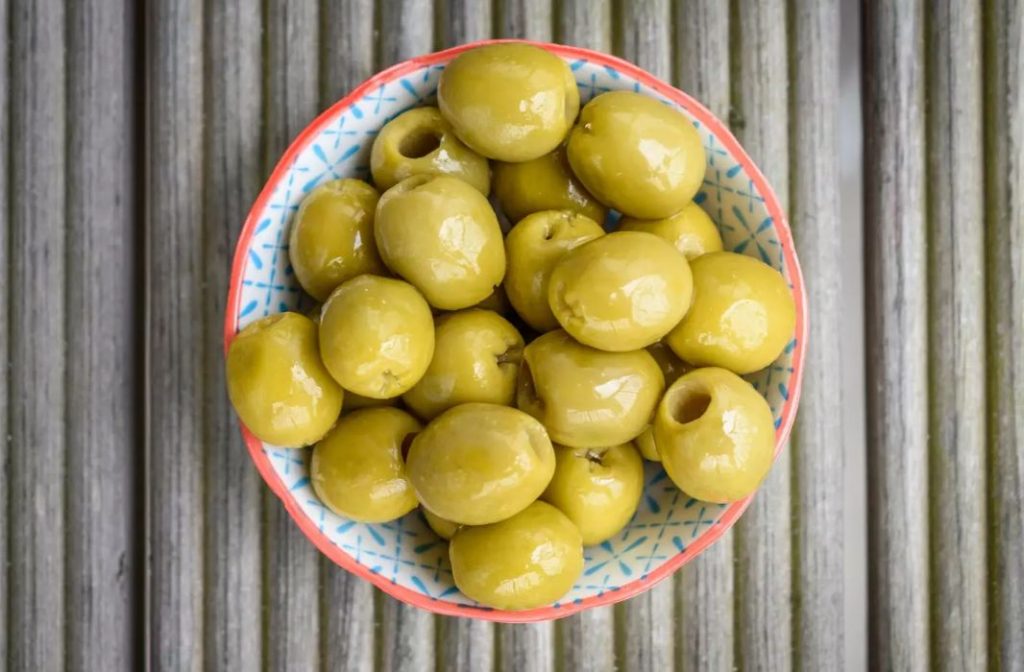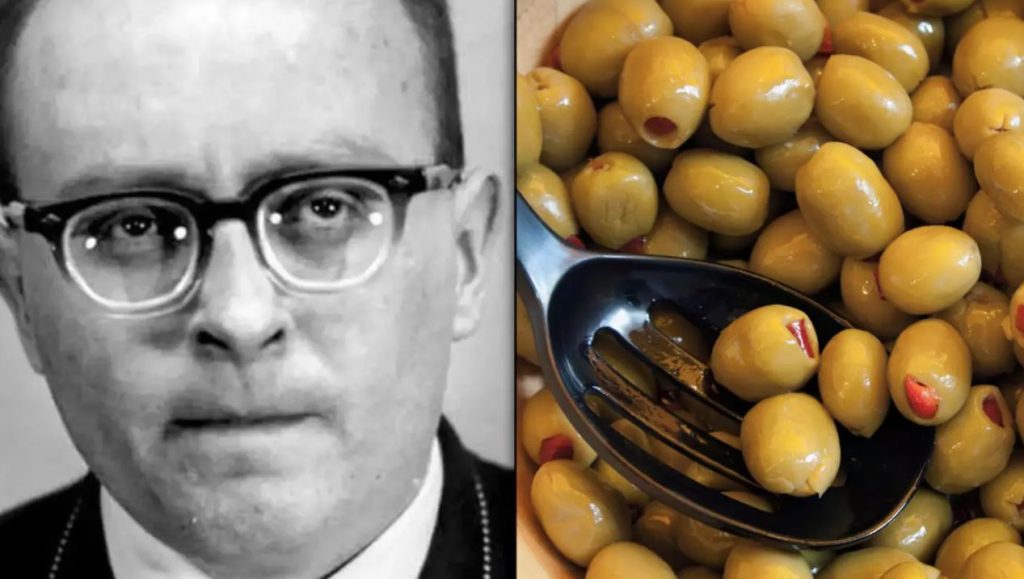In 1963, Victor Harry Feguer, a 28-year-old man on death row, made a deeply unusual request for his final meal: just one single olive, with the pit still inside. His choice was tiny but strangely symbolic and it carried a chilling, hopeful meaning.
Who Was Victor Feguer?
Feguer was convicted for the kidnapping and murder of Dr. Edward Bartels. At age 25, he randomly dialed a number from the phone book, posing a false medical emergency to lure the doctor. When Dr. Bartels arrived, Feguer attacked him, and later his body was discovered in a field. After a trial, he was sentenced to death by hanging. Despite appeals, his sentence was allowed to proceed. Even pleas for mercy — including from the Governor — were denied, and Feguer was executed on March 15, 1963.

The Olive’s Meaning
At first glance, asking for just a single olive might seem trivial — but Feguer’s intention was anything but. He told prison guards that he believed if he were buried with the olive pit, an olive tree would grow from his grave. For him, this tree would stand as a symbol of peace, a final gesture of redemption after a life marked by violence. After his execution, the pit was indeed found tucked inside the pocket of the suit he wore to his hanging — but no tree ever sprouted.
A Contrasting Image
The simplicity of Feguer’s request has made it one of the most haunting last meals on record. While many death row inmates have opted for large, indulgent feasts, his minimalistic choice stands out. Photographer Henry Hargreaves even recreated Feguer’s olive as part of a unique visual project: a “No Seconds” exhibit that reimagines death row inmates’ final meals. In his version, the tiny olive on a plain white plate felt like a full stop — a quiet, solemn end.
Symbolism and Mental State
Some reports suggest that Feguer had been diagnosed with a severe mental illness, possibly paranoid schizophrenia. Whether as a deeply personal spiritual wish or a delusional fantasy, his olive request hinted at his inner world. The image of a tree growing from his grave feels almost poetic — his own idea of peace and rebirth.

Legacy and Reflection
Over time, Feguer’s story has become a memorable footnote in true crime lore. His small but meaningful last meal continues to spark conversations about guilt, redemption, and what we leave behind. His olive, pit and all, represents a wish that went unfulfilled — no tree, no visible sign of peace. But the memory of his request lives on, as a strange and quiet act of hope.
Conclusion
Victor Feguer’s final request — a single olive with the pit still inside — remains one of the most symbolic gestures ever recorded on death row. While his actions were undeniably tragic, his choice of a simple olive revealed a final desire for peace, renewal, or perhaps forgiveness. Whether viewed as a spiritual belief, a reflection of his mental state, or a quiet attempt at redemption, his last act continues to provoke thought decades later. The olive pit never grew into a tree, but the meaning behind it endures, reminding us how even in the darkest moments, people may reach for symbols of hope and transformation.

















